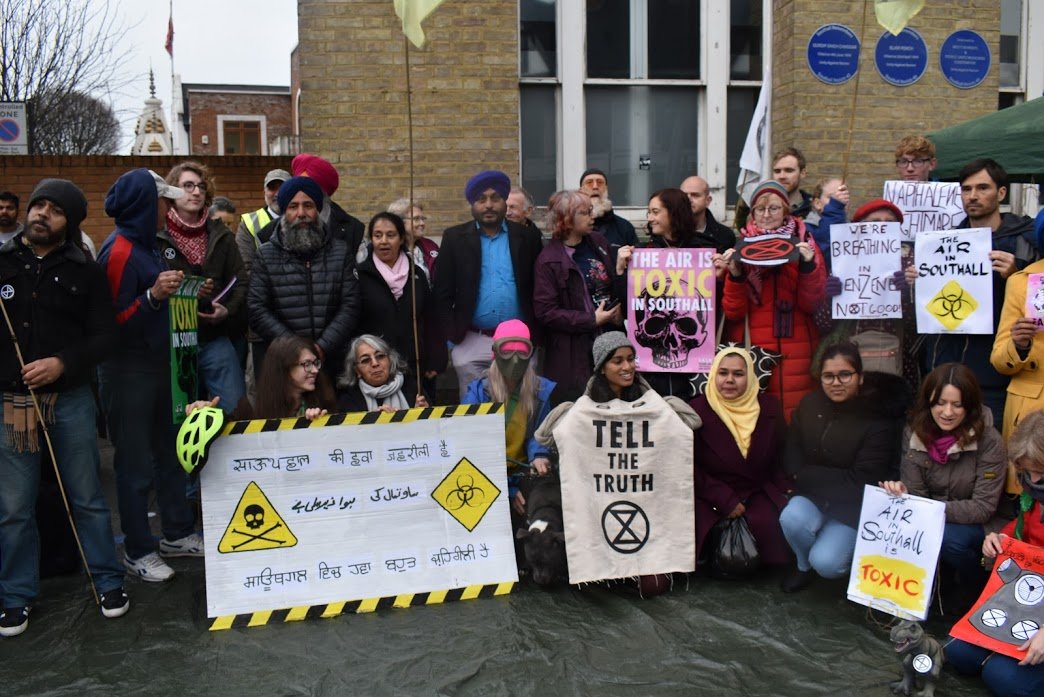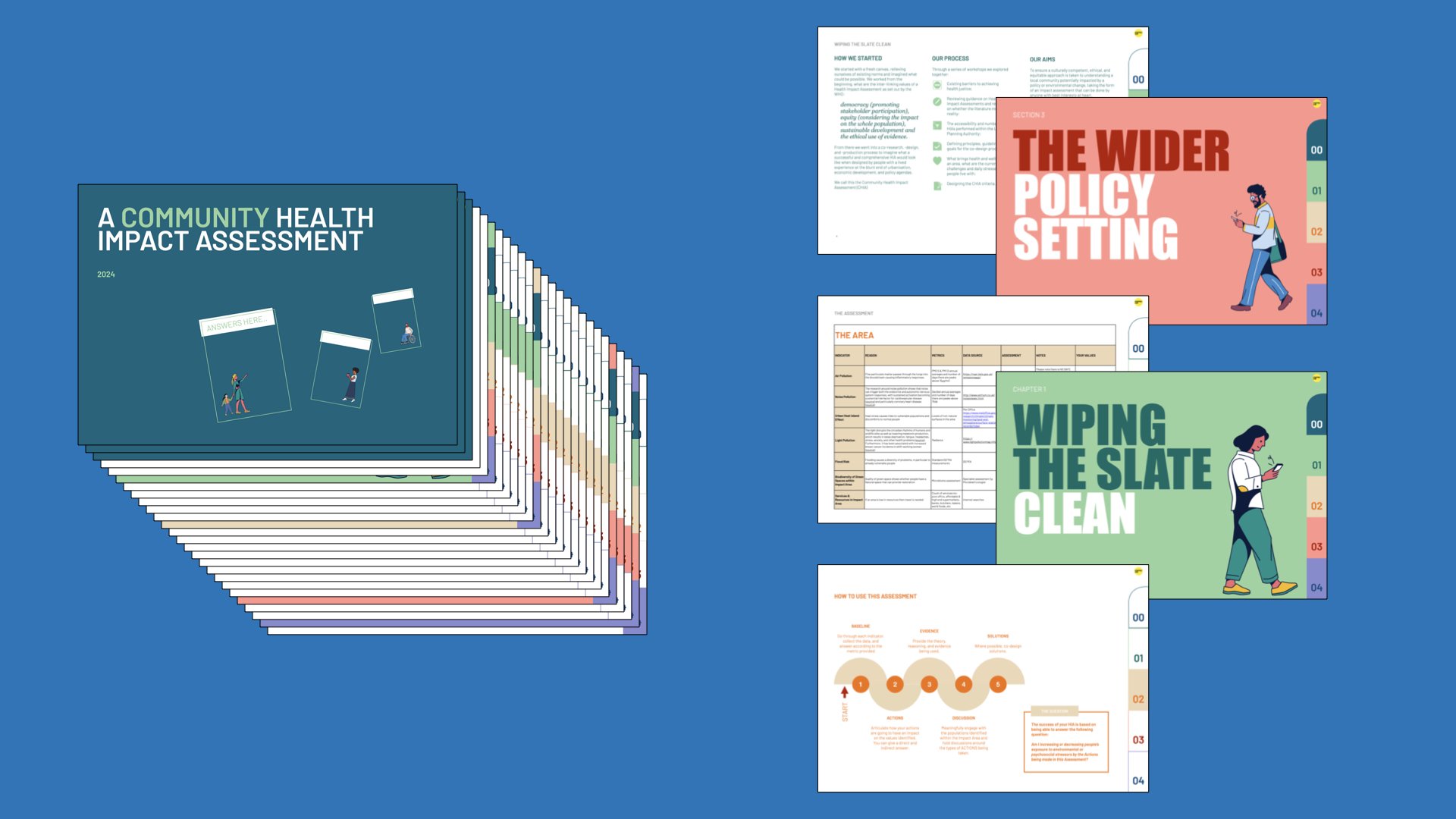Clean Air for Southall & Hayes
CASE STUDY
COMMUNITY HEALTH IMPACT ASSESSMENT
-
Clean Air Southall Hayes is a grassroots campaign group of local residents campaigning against the housing development on the old gasworks site in Southall.
In 2014 National Grid Plc and Berkeley Homes Plc formed a joint venture project to redevelop up to 33 redundant and decommissioned National Grid assets across London and the South East. In 2017 the newly formed St. Williams Homes Llp began remediation works on the former gasworks site in Southall. Despite numerous objections from Ealing Council and neighbouring Hillingdon Council over a wide range of issues, works began with consent of the Mayor of London’s office who used their executive powers to permit the project.
The Southall Gasworks had been decommissioned and concreted over since 1975, however its previous use meant that the land beneath it had become contaminated with a variety of chemicals known to be carcinogenic and dangerous to human health. Despite the authorities declaring that everything was within safe levels, locals experienced an array of health issues undeniable correlated to the construction activity. The residents organised and began challenging the authorities over the claims demanding a halt to the construction.
Southall residents campaigning against the redevelopment of the former Southall Gasworks site in 2018
CONTEXT
Throughout CASH’s campaigning efforts they experienced one blocked route after another. To them, it felt as if every system was able to excuse themselves from direct support. “No one wants to take responsibility for us and we’re paying the price with our lives. We’ve been knocking on the doors of the council, PHE, EA and politicians for years,” CASH member Joginder Singh Bhangu told The Guardian. “Our community has fallen through the cracks.”
By late 2022, the group had become experts in how different regulatory, political, and policy systems were behaving and interacting. As one last throw of the dice to the authorities they wanted to showcase how the current methodologies for baselining, understanding, and deciding on matters of population health in relation to urban regeneration were wrong, they agreed that rewriting the health impact assessment was a way to go; if this new process had been in place when planning documents were being arranged in 2014-17 could the poor health outcomes and overall negative experience have been avoided? They were aghast at the ways in which approaches to understanding their health - as a multi-ethnic working class community - were inadequate and failed to reflect their lives.
ACTIVITIES
Centric Lab helped facilitate a number of workshops with CASH members over a 3 month period. The workshops were phased allowing for specific conversations to have the time needed to debate and ideate. Early sessions focused on blockers to their advocacy efforts, later on sessions focused on what the groups considered was a factor that added or decreased stress levels. With the last ones defining who, how, and when their CHIA would operate. Knowledge sharing sessions were set up with other organisations from ‘Gasworks Communities United’ - a collective of grassroots groups who had emerged in response to gasworks being developed in their areas.
OUTPUTS
A full HIA was produced, redubbed a Community Health Impact Assessment as it focused on understanding the community and then addressing how a project was going to impact them, rather than addressing the health benefits of a new project in line with local health policies and government initiatives.
OUTCOME
Whilst changing systems is hard, a number of wins have been made from this work:
A formal meeting with the leader of Ealing Council was achieved in which he shared enthusiasm for the work that identified aspects where the council ‘could improve its efforts to understand issues of urban health’.
A toolkit from our own experience was created so that others could replicate and create their own CHIA. It has since been downloaded 100s of times and been referenced by a number or community orientated organisations in their work.
Alliances were built, such as those with the Green Party who’s co-leader came to Southall to learn more about their struggle and what CASH were doing




